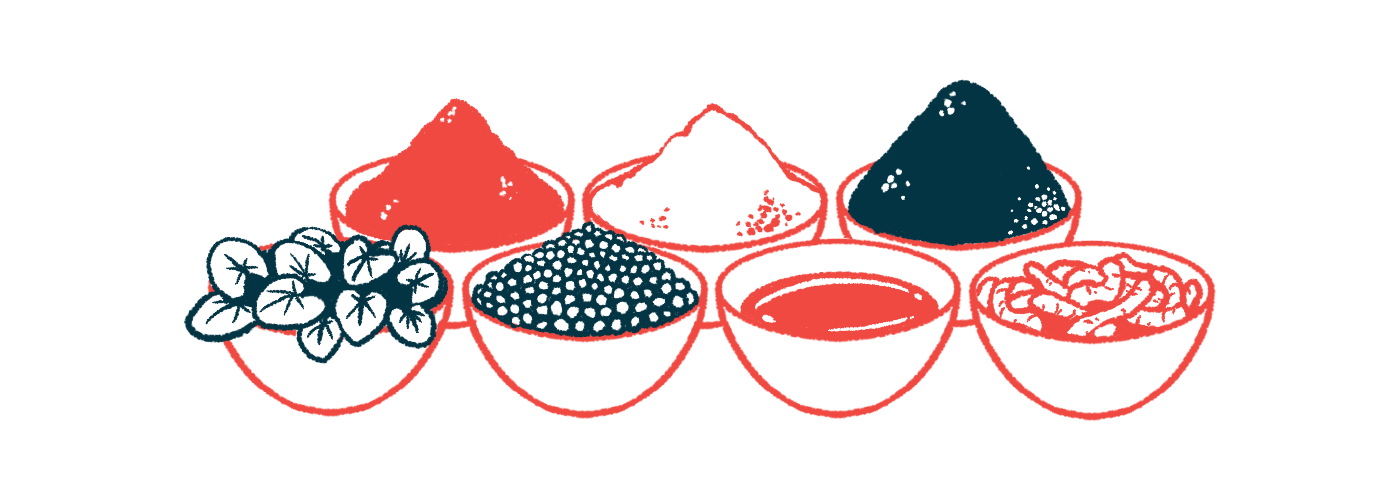Plant compounds found to ease Parkinson’s-like symptoms in rats
Greater cardamom extracts may be treatment for people: Study
Written by |

Plant compounds extracted from the Amomum subulatum fruit, also known as greater cardamom, were found to ease Parkinson’s disease-like symptoms — lessoning tremors and reducing muscular rigidity — in a rat model of features that are hallmarks of the neurodegenerative disorder.
The greater cardamom extracts, given orally, worked to increase levels of dopamine in the animals, which led to a reduction in motor symptoms. In addition, the active compounds from the plant, commonly used in cooking in India, were shown to lessen brain inflammation by increasing the levels of the anti-inflammatory molecule interleukin (IL)-10.
“The present investigation highlights the role of greater cardamom from the Indian kitchen to ethnopharmacology in progressive neurological degeneration,” the researchers wrote, adding that their work “will make a benchmark not only in pharmaceuticals but also in food technology.”
According to the team, greater cardamom or “Amomum subulatum have shown protective capability against Parkinsonism and related behavioural complication.”
The study, “Antiparkinsonian effects of Indian spice Amomum subulatum fruit extract by modulating the behavioural, inflammatory markers, antioxidant, and histopathology parameters in rats,” was published in the journal Brain, Behavior, and Immunity Integrative. The work’s running title was “Effect of Greater Cardamom on the Brain, Behaviour Complications.”
Investigating the effects of plant compounds used in Indian cooking
Parkinson’s is characterized by the death of dopamine producing-nerve cells — those responsible for releasing the neurotransmitter dopamine — in the substantia nigra, a brain region that regulates muscle movement and coordination. Loss of these neurons causes problems in movement, such as tremors, rigidity, and poor balance.
Herbs, such as those used in traditional Chinese and Indian medicine, often contain active plant compounds that may have neuroprotective effects. Globally, researchers now are trying to assess the therapeutic potential of traditional herbs’ active compounds for diseases like Parkinson’s.
Greater cardamom is a spice commonly used in Indian cuisine. It belongs to the ginger family of flowering plants, which is known to Himalayan people for its pharmacological and physiological properties.
Its active compounds, such as flavonoids and steroids, may have antioxidant properties and help reduce oxidative stress, a condition caused by an imbalance between the body’s production of potentially harmful reactive oxygen species (ROS) and its ability to dispose of them. Oxidative stress is a known factor contributing to the death of dopamine-producing neurons in Parkinson’s disease.
Now, researchers at the Himalayan Pharmacy Institute, in India, assessed the therapeutic potential of A. subulatum fruit extract — composed mainly of flavonoids — against parkinsonism.
The team used a rat model of parkinsonism induced by administration of the chemical reserpine, once daily, for five days. Reserpine causes tremors and muscular rigidity, as well as impaired locomotor activity and grip strength. Rats given a vehicle solution, without reserpine, were used as controls.
Reserpine and A. subulatum fruit extract were administered, orally, for five days, with symptoms evaluated one day after the last dose of reserpine.
Compared with controls, reserpine-treated rats developed tremors and enhanced muscular rigidity. However, both symptoms were significantly reduced in rats treated with a low (100mg/kg) and high dose (200mg/k) of A. subulatum fruit extract. A separate group of rats treated with levodopa/carbidopa — the mainstay of Parkinson’s therapy — also exhibited significantly decreased tremors.
Significant improvements were observed in various symptoms and behaviors when administering both low and high doses of the A. subulatum fruit extract, as well as levodopa/carbidopa therapy. These improvements included reduced instances of catalepsy, a state of immobility and stiffness, and an improved ability to perform visible movements, known as akinesia. Increased locomotor activity and enhanced grip strength also were seen in the animals.
Anti-inflammatory effects seen with use of cardamom plant compounds
In rats with parkinsonism, the levels of key antioxidant enzymes, including superoxide dismutase, catalase, and glutathione were reduced. However, their levels increased following treatment with A. subulatum fruit extract. An assay that assesses oxidative stress, called thiobarbituric acid reactive substance (TBARS) assay, confirmed that the fruit extract reduced the levels of ROS.
The levels of two pro-inflammatory molecules — tumor necrosis factor (TNF)-alpha and IL-6 — were significantly increased after treatment with reserpine when compared with controls.
While the lower dose of A. subulatum fruit extract led to significant reductions in the levels of IL-6, the higher dose as well as levodopa/carbidopa treatment resulted in a significant reduction in both IL-6 and TNF-alpha.
On the contrary, the levels of IL-10 — known for its anti-inflammatory properties — were reduced in parkinsonism rats versus control rats. Its levels increased following treatment with both low or high dose A. subulatum fruit extract, as well as levodopa/carbidopa treatment.
According to researchers, these results indicate greater cardamom can promote immunomodulation, the process of influencing or regulating the immune system.
Similar results were seen when it came to the amount of dopamine in the brain. The high dose of A. subulatum fruit extract significantly increased the concentration of dopamine. In rats with parkinsonism who were treated with levodopa/carbidopa, dopamine levels also increased.
Tissue analysis of the substantia nigra in the rats’ brains revealed that reserpine triggered the loss of nerve cells and the formation of clumps of misfolded proteins known as Lewy bodies.
When rats were treated with the low dose A. subulatum fruit extract, it resulted in improvements in the structure of their brain cells. When the higher dose was given, it additionally led to a decrease in the formation of Lewy bodies.
Overall, this study emphasizes the significance of greater cardamom, a common spice used in Indian cuisine, and its active compounds in the development of potential therapeutics for Parkinson’s disease, according to researchers.
“The doses significantly affected the behavioural parameters where symptoms like tremors, muscular rigidity, and catalepsy were reduced relatively,” the team concluded.




